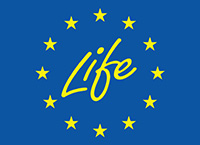Continuation organic equivalency confirmed by UK and the EU & new regulations interpretation published
UK-EU trade agreement
The UK-EU Trade and Cooperation Agreement that entered into force on 1 May 2021 contains provisions on the necessary reassessment of organic equivalence before the end of 2023. During the past year, the UK and EU have been reviewing the existing UK and EU organic regulations. On 6 December 2023 both sides confirmed continuation of accepting each other’s organic legislation as equivalent. Each side has taken the necessary steps to ensure trade in organic products between UK and the EU can continue beyond 2023.
Details of the EU’s recognition of UK organic exports are available on the Commission’s website agreements on trade in organic products. Details on the UK’s recognition of the EU’s organic products are available on the British government’s website.
It is important to note that organic products imported from the UK into the EU, Norway, Iceland, Liechtenstein and Switzerland require a Certificate of Inspection (COI) issued in the EU’s TRACES NT system. Organic products exported from the EU, Norway, Iceland, Liechtenstein, and Switzerland into the UK will not require a COI until 1 February 2025. The products should originate in the country they are being exported from which means that products must be produced or processed in the UK to be exported to EU as organic, and vice versa.
All details can be found in the the EU’s official journal: Trade and Cooperation Agreement, Annex 14: Organic Products.
EU Commission FAQ on organic rules
The Commission regularly updates its Frequently Asked Questions on organic rules. The most recent update was on 30 November 2023. It contains new interpretations on plant reproduction material and the use of Lithothamnium in organic products.
More on the EU Organic Regulation
Since March 2022, we are offering guidelines to help practitioners interpret the EU Organic Regulation. These guidelines helps readers to navigate the regulation, its implementing and delegated acts and links to definitions, recitals, other EU legislation and more. We will update the guidelines in the first quarter of 2024.
For more information on the EU organic regulationand IFOAM Organics Europe’s work on this issue, please visit our website or contact [email protected]. Do note that we prioritise our members’ requests.
IFOAM Organics Europe members have early access to information on the EU Organic Regulation through our Interest and Expert Groups and our member member extranet. They also have one free access to the EU Organic Regulation guidelines.
For information about what you can gain from being a member, read our membership page and contact [email protected].

The work of IFOAM Organics Europe on this topic is co-financed by the LIFE programme of the European Union, under the Climate, Infrastructure and Environment Executive Agency (CINEA). This page only reflects the views of the authors and its sole responsibility lies with IFOAM Organics Europe. The CINEA is not responsible for any use that may be made of the information provided.

